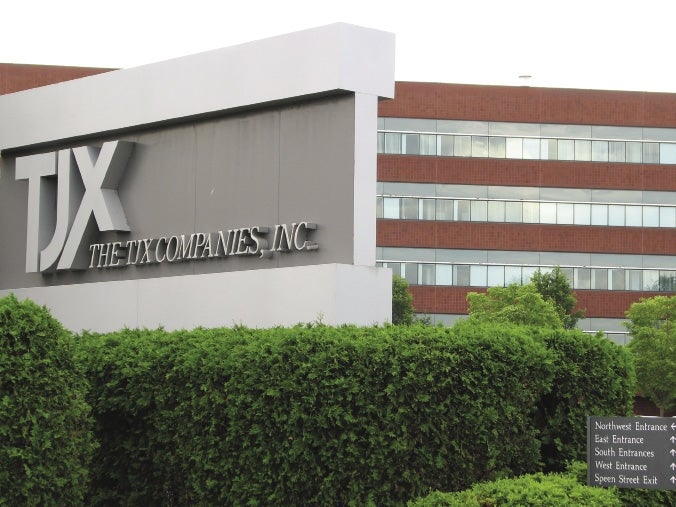It seems TJX Cos. can’t be beat. The Framingham-based off-priced retailer, which owns Marshalls, HomeGoods and T.J. Maxx, has increased its earnings for the last 18 years, and exited the recession virtually unscathed. TJX beat expectations in the second quarter, which ended Aug. 2. Profits rose to $518 million, a 7-percent increase over last year, and the company raised its financial expectations for the rest of the fiscal year.
Meanwhile, others struggle to keep pace. Kmart is liquidating up to 120 stores, as parent company Sears Holding Corp. lost almost $1 billion in the first half of 2014. JCPenney has been mired in retail woes in recent years, though the discount department store chain seems to be showing signs of a comeback.
What is TJX doing right?
Retail experts say TJX’s approach to buying clothing and housewares to stock its shelves is important to its success. TJX moves product quickly through its stores, and is buying new inventory each week, whereas most retailers buy seasonally. This was detailed in a recent Fortune magazine article, which illustrated how the company has built the infrastructure to distribute new product to its stores in as little as one week from the time purchases are made.
Jon Hurst, president of the Retailers Association of Massachusetts, said this approach is unique and explains why TJX has been able to expand its store count (now about 3,200) while others have scaled back. Shoppers, Hurst said, can expect to see entirely new merchandise since their last shopping trip a week earlier.
“They give them a reason to come back,” Hurst said.
Are there other factors at play?
Buying strategy aside, TJX has also benefited from the Great Recession, according to Hurst. Many industries have struggled to climb out of it, but consumer habits have changed in a way that should benefit discount retailers like TJX, he said. And while economic recovery appears healthy today, Hurst said consumer psychology is still catching up, making shoppers more likely to hunt for bargains.
At the same time, TJX is unique because it offers name brands, including clothing made by high-end designers. Buying a good name is still important to buyers, Hurst said, making TJX offerings all the more appealing.
What’s next?
The upward trend will probably continue. CEO Carol Meyrowitz said the company expects annual per-share earnings to fall between $3.08 and $3.16 per share in fiscal 2015, which ends in January. That’s up from $2.94 in fiscal 2014. The company also continues to increase its footprint, adding 23 stores in the second quarter.
One area where TJX has lagged is e-commerce. The company launched its first online store, TJMaxx.com, last year, while the majority of retailers have been selling online for years.

